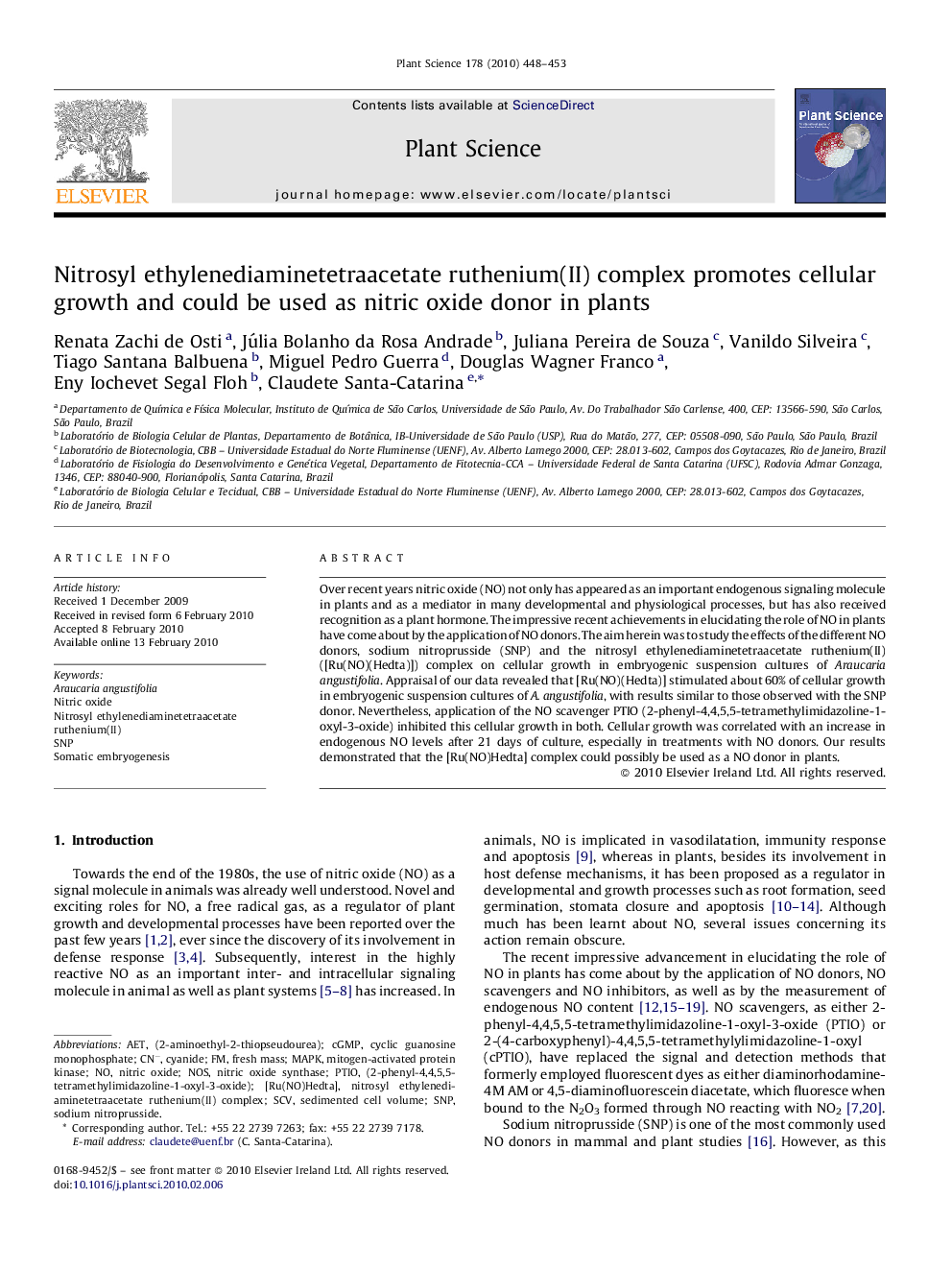| Article ID | Journal | Published Year | Pages | File Type |
|---|---|---|---|---|
| 2018115 | Plant Science | 2010 | 6 Pages |
Over recent years nitric oxide (NO) not only has appeared as an important endogenous signaling molecule in plants and as a mediator in many developmental and physiological processes, but has also received recognition as a plant hormone. The impressive recent achievements in elucidating the role of NO in plants have come about by the application of NO donors. The aim herein was to study the effects of the different NO donors, sodium nitroprusside (SNP) and the nitrosyl ethylenediaminetetraacetate ruthenium(II) ([Ru(NO)(Hedta)]) complex on cellular growth in embryogenic suspension cultures of Araucaria angustifolia. Appraisal of our data revealed that [Ru(NO)(Hedta)] stimulated about 60% of cellular growth in embryogenic suspension cultures of A. angustifolia, with results similar to those observed with the SNP donor. Nevertheless, application of the NO scavenger PTIO (2-phenyl-4,4,5,5-tetramethylimidazoline-1-oxyl-3-oxide) inhibited this cellular growth in both. Cellular growth was correlated with an increase in endogenous NO levels after 21 days of culture, especially in treatments with NO donors. Our results demonstrated that the [Ru(NO)Hedta] complex could possibly be used as a NO donor in plants.
